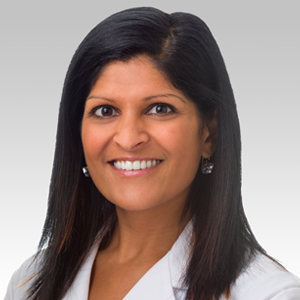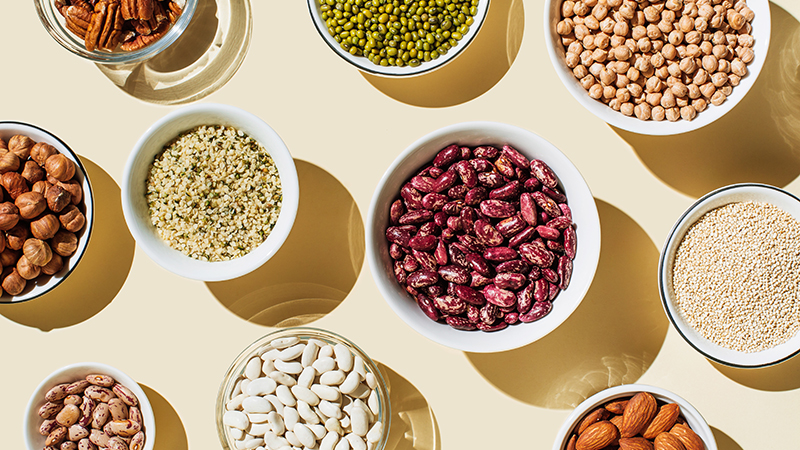Stop Stress Eating
Create a Snacking Plan
Updated February 2023
Do you crave certain foods when you feel stressed? You're not alone. Research shows that people tend to eat more foods that are high in calories and fat when they feel stressed.
Long-term stress results in the constant release of cortisol, a hormone that can increase your appetite.
It's important to be intentional with snacking.— Anjali U. Pandit, PhD, MPH
In addition to food cravings, your body also stores more fat when you're stressed, which can lead to an increase in body weight. Being at a higher body weight, or having obesity, increases your risk for:
- High blood pressure
- High cholesterol
- Type 2 diabetes
- Stroke
- Asthma
- Sleep apnea
- Gallstones and gallbladder disease
- Joint and musculoskeletal problems
- Many types of cancer
- Psychological changes, such as symptoms of depression and anxiety
"People often turn to food to manage their stress or to cope with other emotions, like boredom and anxiety," says Anjali U. Pandit, PhD, psychologist at the Northwestern Medicine Center for Lifestyle Medicine. "However, if you are trying to lose or maintain weight, it's important to be intentional with snacking and have a healthy snacking plan in place when these moments occur."
Here are some tips for healthier snacking when you feel stressed.
Create a meal schedule.
- Choose set times of the day for meals and snacks, and stick to the schedule.
- Before you eat, take a moment to check in. Ask yourself if you're actually hungry, or if there's something else that is triggering your desire to eat, such as stress, boredom, sadness, anxiety or frustration.
"Try the carrot or apple test: Would you eat an apple or a carrot right now if that was the only option in front of you? If not, you're probably not eating out of physical hunger," says Dr. Pandit.
- Plan out your meals in advance — not only when you'll eat, but what you'll have. The evening before, commit to your food plan for the next day by either writing it down with pen and paper or entering it into a food tracking app.
- Work in an "eating-free" or "food-free" space as much as possible. If you can, get out of the kitchen when you're not preparing food or intentionally having a meal or snack.
Increase stress-relieving activities. If you know that you often turn to food to avoid or cope with stress or other emotions, consider engaging in an activity that can help you effectively deal with that emotion. Tap into your recharge and recreation toolbox by doing activities like:
- Yoga
- Meditation
- Exercise
- Deep-breathing exercises
- Drinking plenty of water
- Taking a bath or shower
- Video chatting with a friend (out of the kitchen)
- Knitting
- Reading
- Coloring … the list goes on. Be creative!
These things can help you deal with stress, which in turn means that you may be less likely to reach for food to keep you busy or to de-stress.
Pay attention to these other factors.
Be aware of the foods you tend to eat when you feel stressed. If you are more likely to consume certain foods only when you're eating to cope with or avoid emotions, try to reduce or eliminate these foods in your home or workplace.
If you are reaching for these foods, ask yourself what are you feeling. Can you identify the emotion? It may be stress, worry or even discomfort. Pause and identify how these emotions feel; recognize that when you try to avoid emotions with eating or other distractions it may be harder to manage them in the future. Observe and notice your feelings rather than trying to change or avoid them.
Don't be too restrictive. To find a lifestyle that works for you in the long term, know the importance of moderation. Moderation and flexibility in your diet will help you make healthy choices in the long term. Have a snack or treat, just be sure it's preplanned and not driven by your emotions.
Seek professional help.
If the urge to eat is overwhelming, you may find it helpful to talk with a psychologist who specializes in food, like Dr. Pandit.
Many people of all ages deal with eating and body image issues. You are not alone. If you or a loved one need support for your relationship with food or eating patterns, find resources and help here.






